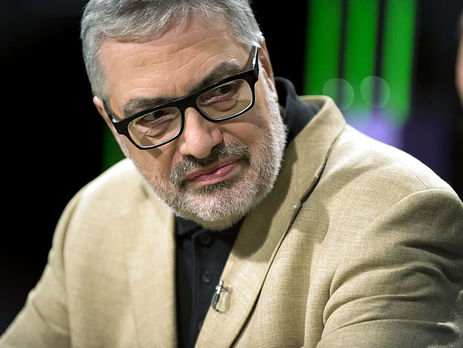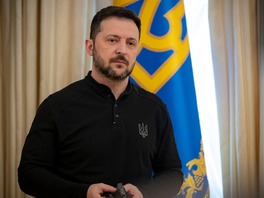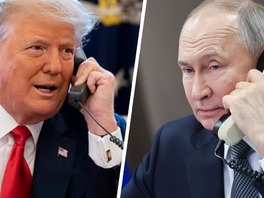Last week was quite a busy one in terms of events on international security issues. A two-day meeting of NATO member-states' defense ministers took place in Brussels, where Russian President Vladimir Putin and Russian Defense Minister Sergey Shoygu bragged about their country's military achievements.
- Tell us, what were the main themes discussed at the meeting of NATO defense ministers?
- As usual, Iraq, Afghanistan, and, most importantly, the threat from Russia's deployment of non-strategic dual-use missiles that can carry a nuclear charge. The main problem is that no one, except Russian General Staff, knows on which missiles there is a "special" combat unit, and on which an ordinary one. This is not regulated by any treaty, which creates uncertainty and opacity.
I do not know if it happened by chance, but during the NATO meeting in Moscow on February 11, Defense Minister Sergey Shoygu gave a speech. He said that there is an accelerated deployment of long-range cruise missiles and that their number has increased 30 times since 2012, which is consistent with NATO statements. It is true that he mentioned ground-based missiles, which indicates that Russia violated IRNFT treaty. In general, he boasted too much.
Nevertheless, there is a threat from Russia. The Kremlin continues to deploy such missile systems, while in the West they do not. The Americans still have Tomahawk cruise missiles, but they are all non-nuclear - the nuclear option was completely eliminated under Barack Obama.
- Does this mean the West has nothing to oppose Russia?
- Although the West says it's going to confront Russia, so far all decisions have been negative. First, they have decided that they will not deploy missiles on the principle of "one for each Russian". And secondly, they decided that they will not deploy any nuclear weapons on the European part yet. They say that there is a big threat, and it is not clear what to do.
There is an agreement not to do anything. There is neither the political will nor the technical capacity to take any measures. The exception is that the Americans have deployed a number of low-yield warheads on strategic submarines on Trident missiles. This was done in case Russia will have a nuclear escalation, a limited nuclear strike on Europe - not to hit at once with all the power of 200 kilotons, but to use, for example, 5 kilotons. In total, 50 such warheads have been made. They will serve as a tactical nuclear missile response. It will be a deterrent until the Americans create a new generation of non-nuclear missiles in a few years.
- Vladimir Putin said at a meeting of the commission on amending the Russian Constitution that Russia is developing new weapons, more advanced than nuclear ones. What can it be?
- We do have such weapons - for example, Peresvet combat lasers have been deployed. Probably, Putin meant it. But the laser still has a nuclear power plant. Russian nuclear weapons have high power, but this is compensated by the inaccuracy of our missile systems. The Americans will also partially give up nuclear weapons in favor of more high-precision ones. This is why Putin said that there is no need to specify the status of nuclear power in the Constitution. This does not mean that Russia will give it up now. Putin was just waffling.
 Peresvet (laser weapon)
Peresvet (laser weapon)
- The General Staff of the Armed Forces of Ukraine has already adopted the plan of reforms in the army for 10 years, and Deputy Prime Minister Dmytro Kuleba urged NATO to accept Ukraine as a member of the program of expanded opportunities - it is like MAP, but without political background. Have you noticed the readiness of the Alliance to provide Ukraine with any partnership programs?
- What does the situation between NATO and Russia mean?
- The situation shows that there is a further increase in tension on the continent. Russian missiles are potentially aimed at all European cities and Europe in general. These are not only cruise missiles, which NATO calls SSC-8, but also hypersonic missiles. But since the latter are designed to break through the missile defense system, and there is no real serious missile defense system in Europe, Western experts believe that the deployment of hypersonic missiles makes practically no difference. There are no defensive or offensive systems in the EU that could create a balance for Russia.
The situation reminds us of the 1970s, when the Soviet Union deployed Pioneer missiles and the West did not know what to do for a long time, but as a result, responded with Pershing cruise missiles. But it took time to develop them. " Pershings" were a completely innovative technique, with self-guided ballistic blocks - there are still no such missiles in Russia, and the West created them in the 1970s. The crisis started and the answer came. Missiles capable of destroying the military and political leadership of the Soviet Union appeared. Then Gorbachev and Reagan signed the IRNFT treaty. But so far, as Putin says, Russia is ahead of everybody.
- What was arms rattling by Shoygu arranged for?
- He is a politician, unlike the entire Putin team. He loves PR. He's been in politics a long time - since 1991, much longer than Putin himself. Shoygu must have political ambitions for the future. He is, in general, the only Russian minister who has his own rating, except Sergey Lavrov. The rest of the Russian government is just bureaucrats who are not interested in it, they depend on only one person.
- Those "wunderwaffe" that Shoygu boasted about - are they really very effective?
- First of all, they are almost all nuclear, except laser, and secondly, they were developed in 1970-1980. They can kill people - that's true, but they're different, to put it mildly, in technological incompatibility. And they cannot deploy other weapons in Russia - the technological gap with the West is growing.
 Sergey Shoygu
Sergey Shoygu
- Has NATO made any significant statements about Iran, Syria, and Libya?
- Secretary-General spoke about Syria, namely the province of Idlib, and Libya. He condemned the violence in Idlib, said the Russians and the Syrian government were killing civilians. Everybody understands that this is indeed a very serious crisis, but they are not yet ready to talk about it publicly or interfere there, they hope that it will settle down. Turkey is trying to resolve the issue in Moscow. But Idlib is not in NATO's area of responsibility, if the fighting spills over to Turkey, then this is Article 5 of the Alliance's treaty. Moreover, everyone is finally fed up with Erdogan. And while Russia is condemned both for Idlib and Donbas, there is no truce at all. Anyway, they express indignation and concern.
NATO countries have different positions on Libya. For example, Emmanuel Macron has invited Khalifa Haftar, while other members of the Alliance considered him a rebel. So NATO is split across Libya. When there are 29 countries in an organization, it is always difficult to find consensus and make any decisions. NATO is primarily a political organization, but there is no political will. But it can appear because there are threats.





